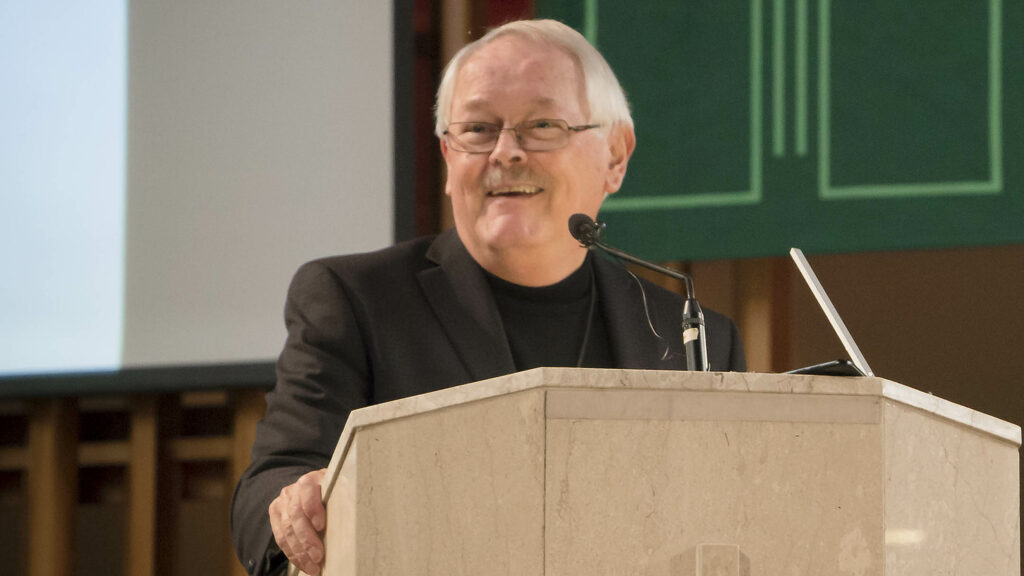Our greatest strength is often our greatest weakness. Sensitivity is a gift, but as any sensitive person will tell you, that gift can be a mixed blessing. Sometimes a thick, calloused skin can save you from a lot of suffering, particularly from heartache.
The popular spiritual writer Henri Nouwen was a highly sensitive person. That was both his gift and his curse. He suffered a lot because of his sensitivity. For instance, several times he fell hopelessly in love with someone, but because he was a vowed celibate and because those deep feelings were not mutual, he was left alone in that obsession, frustrated, emotionally paralyzed. These obsessive feelings so overpowered him that (to his honesty and to his credit) he sought clinical help. By his own admission, those were the darkest and most painful periods in his life.
There are many like him in this world and there is someone like him inside everyone who is highly sensitive. Indeed, one of Nouwen’s heroes was the famed Dutch painter, Vincent Van Gogh, who suffered from acute over-sensitivity for much of his life and at one point, suffering from an emotional obsession in love, cut off one of his ears and sent it to the person with whom he was obsessed. Another person who Nouwen idolized was the Danish philosopher Soren Kierkegaard, whose personal loneliness deeply colored his religious and philosophical writings. It’s no accident that so many highly creative persons (artists, writers, performers) are often caught in the grip of emotional obsession. I suspect that this is true for all of us to some degree.
What’s to be done when some emotional obsession literally paralyzes us?
I have twice posed this question to psychologists. In the first instance, it was to the renowned Dutch psychologist Antone Vergote. I twice had the privilege of being in his classroom and in one of those classes, I asked him this question. How do you help a person who is so paralyzed by some heartache or other pain that it leaves him or her suicidal? His response was humble. He began by saying this is singularly the most difficult situation we will ever deal with, inside ourselves, inside our families and friendships, and inside pastoral and counseling situations. He admitted that psychology was still grappling with what a helpful response might be and suggested that we might find some enlightening perspectives by reading the great novelists.
Then he offered this: emotional obsession is a form of over-concentration, a fixation that holds us in its grip until we somehow break its spell. What can be helpful (if anything can be helpful) is distraction, anything that can take that person’s mind off its fixation. This may sound crass, especially when our perennial religious counsel has been “take your troubles to the chapel”. Shouldn’t prayer be the answer? Yes, it should, but that too has its dangers. If you are in the paralyzing grip of an obsession, alone in a chapel might be the last place you need to be. Alone and emotionally paralyzed, the darkness might well overpower you. In our darkest moments, it’s the incarnate God, the human touch of God through the care of someone, which constitutes the real chapel to which we need to go.
The second psychologist to whom I posed this question added this piece of advice. Never stay in this kind of darkness alone. Indeed, never enter it alone. Be with somebody – a friend, a mentor, a doctor, a guide, a fellow-sufferer, anyone. I remember an occasion some years ago when a young man came to me in the grips of this kind of obsession and suggested that he wanted to do was to drive off by himself into the mountains, rent a cabin, and “think this through”. I strongly advised him that it was the last thing he should do, in that being alone and isolated with his obsession would be dangerous. What he needed, I suggested, were things that could distract him – his work, his friends, his routines, his normal escapes.
Not everyone is Jesus who went into the darkness of his crucifixion alone. Except, except, he wasn’t alone. He was with his Father. If we trust our faith strongly enough to know that, respective of anything, we will know that God is there for us, then we can risk entering the darkness alone. Then we can take our emotional paralysis to the chapel and to remote cabins in the mountains. However, if we fear how our wounded selves might render us helpless and suicidal, we will want to hold fast to the hand of a trusted friend and look for any kind of distraction that can break the obsession paralyzing us.
On one of those occasions when Henri Nouwen had checked himself into a clinic for depression, he wrote a book, The Inner Voice of Love, to share how eventually he did cope. What he ultimately learned is that our hearts are greater than our wounds; but we don’t always know that in the darkness.

